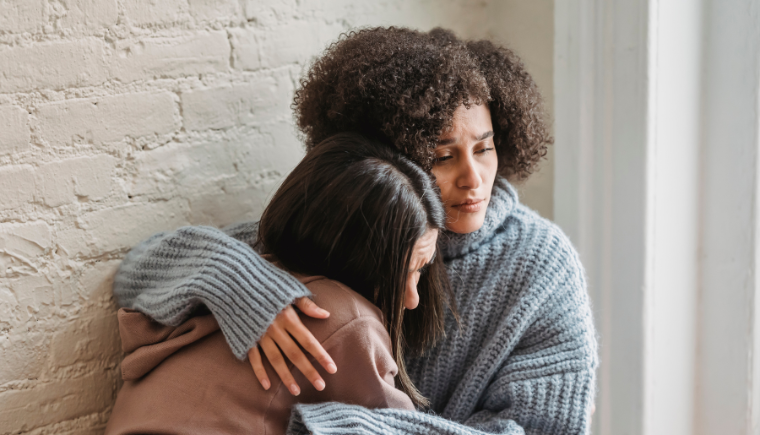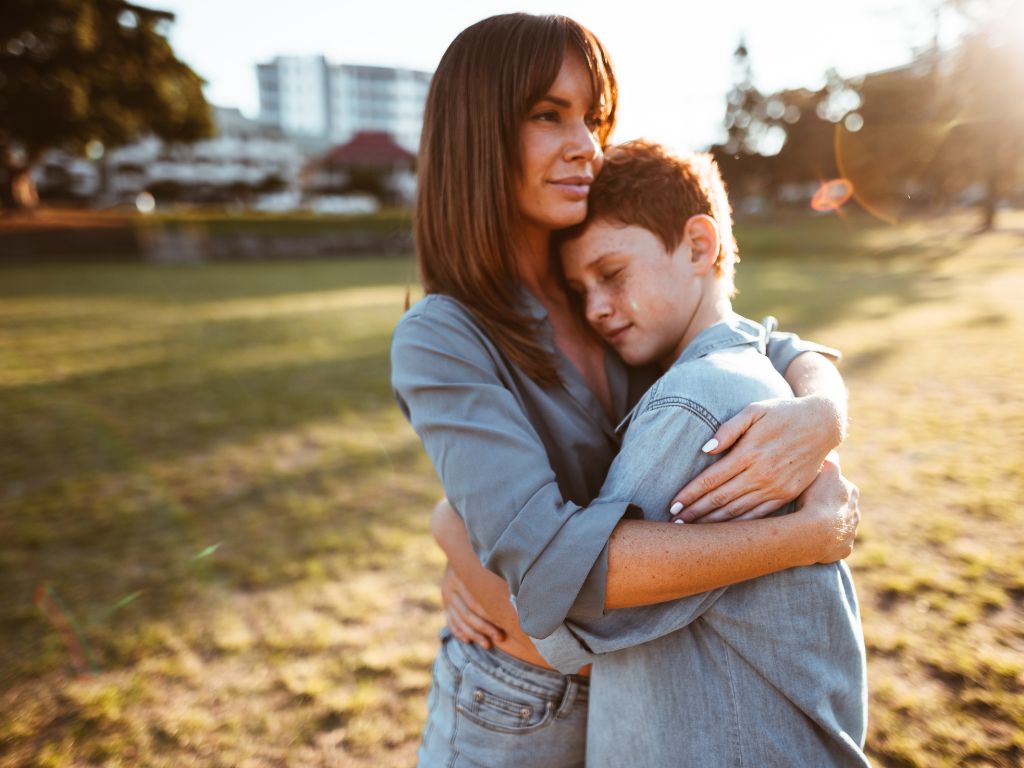Colorado Stands With Survivors, Always

October is Domestic Violence Awareness Month (DVAM). This month is a time for communities and advocates to come together, raise awareness and support people who have experienced or are experiencing domestic violence.
Domestic violence is more common and complex than many people realize. It affects people across every community, yet it often doesn’t receive the same attention or resources as other widespread issues.
We all have a role to play. By recognizing signs, responding with care and sharing information about free and confidential services in Colorado, we break the cycle of abuse, support victims and show that we stand with them this month, and always.
Understanding Domestic Violence
Domestic violence is a pattern of abusive behavior that an individual uses against their partner to gain control or power.
People often think of domestic violence as only physical harm, but abuse can take many forms:
- Emotional abuse: name-calling, humiliation or constant criticism.
- Isolation: limiting or cutting off relationships with family, friends and social networks.
- Financial abuse: restricting access to money, sabotaging work or preventing financial independence.
- Sexual abuse: any sexual behavior performed without a partner’s consent.
- Reproductive coercion: controlling contraception or pregnancy decisions.
- Technological abuse: monitoring or controlling a partner through devices or online platforms.
Anyone can experience domestic violence no matter their gender, race, sexual identity or income. The first step to building awareness and support is recognizing the many forms of abuse and knowing that it can affect anyone.
How You Can Support Someone Experiencing Domestic Violence
If someone tells you that they are experiencing abuse, your reaction and words matter. Every situation is unique, safety may look different for each person. Some may already have safety measures in place, while others may need support in building coping strategies or planning to leave when it is safe.
Survivors often face many challenges, including fear for their lives, financial dependence, fear of losing their children, immigration concerns and emotional attachments. These complexities can make leaving difficult or unsafe. Trained advocates at community-based organizations are the best equipped to create safety plans and connect survivors to resources, you still play an important role.
Ways you can support:
- Listen and respect their choices. Ask how you can help in an open and non-judgmental way. Avoid suggesting they leave their partner, criticizing choices or confronting the abusive partner as these actions can increase risk and discourage future disclosure.
- Offer safe technology access. Many survivors can’t safely use cell phones or computers because their partner is monitoring. Providing a safe device can help them connect to resources.
- Provide safe storage of important items. Offer to gradually store clothes, money and important documents. Leaving suddenly can be the most dangerous time for survivors.
- Be a safe place in an emergency. Survivors may need temporary shelter, transportation or childcare. Offering these supports can provide a lifeline.
Resources are Available in Colorado and Nationwide
Colorado has more than 45 community-based organizations dedicated to serving survivors of domestic violence and their families. These organizations offer free, voluntary, and confidential services such as 24/7 crisis line, advocacy, support groups, counseling, safety planning, shelter, housing information, emergency aid and legal support. Visit the Violence Free Colorado webpage to learn what resources are available in your area.
Nationwide, survivors or loved ones concerned about abuse can contact the National Domestic Violence Hotline at 800-799-SAFE or visit thehotline.org to connect to advocates for confidential support.
Supporting Survivors Over Time
Supporting survivors is more than responding to moments of crisis. Standing with survivors, always, also means:
- Elevating survivors’ voices and advocating for policies that expand access to services.
- Supporting organizations through donations or volunteering, so they can continue offering life-saving services.
- Educating others about domestic violence, healthy relationships and available resources.
Ending domestic violence requires ongoing prevention, survivor support, as well as treatment and accountability for those causing harm. By standing with survivors, we can create pathways to safety and healing where survivors can access resources, rebuild trust, experience love and live free of fear.
More Posts







